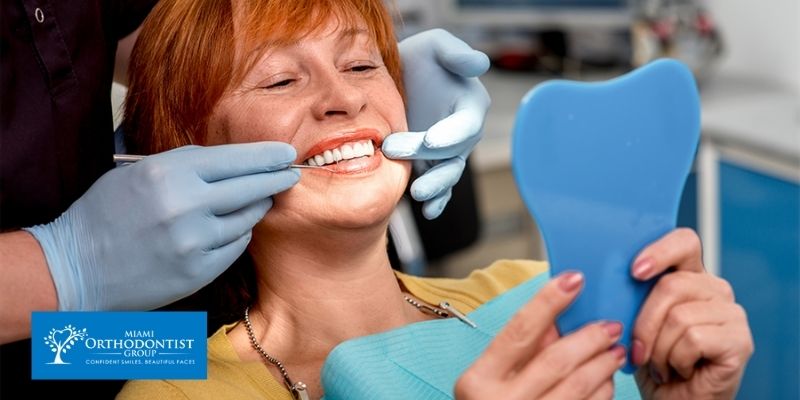Ever wondered why it seems like there is always a remedy to a tooth deformity, misalignment, facial or jaw structure, etc. The truth is that some dentists did not stop at being dentists, but they went ahead to acquire specialized training in the dental field.
Who Is An Orthodontist?
An orthodontist is a dentist that specializes in certain aspects of the dental field. Orthodontists are those who carry out orthodontic treatments in both children and adults. Most persons think that every doctor who treats any teeth deformity is a dentist.
In a certain way, it is accurate but not entirely true. This is because a dentist renders services based on minor teeth issues, but some dental doctors go beyond the regular treatments of diagnosing problems that are wrong with the teeth; they go on to correct misaligned, crooked, and infectious teeth, gum, and jaw deformities in their patients.
That means a dentist diagnoses and treats regular dental cases; whereas, an orthodontist goes beyond the regular to correcting extreme dental issues. Their focus is to provide help with the positioning of the teeth and how the bones in the gum are functioning. And how they can improve the smile of an individual — either through surgeries, the right braces, or customized treatment plans for the patient.
We could also see it in this manner that all orthodontists are dentists but not all dentists are orthodontists because they can not straighten the teeth of their patients. It is not a dentist who treats issues of overbites, underbites, crossbites, and open bites. Rather, it is what an orthodontist does. The patient can meet his dentist to consult regarding their complaints, but the moment the dentist carries out an examination on the teeth or runs a scan on it and discovers that it is an orthodontic treatment, they immediately refer the patient to meet with an Orthodontic specialist.
Dental Issues An Orthodontist Can Fix
Diastema

Having a diastema may look appealing to some individuals, but an orthodontist specializes in either filling them up or recommending braces for their patients. This will help to bring the teeth together to close up space, or the specialists may recommend a teeth implant to have the space filled with an artificial tooth that will perform the same function a natural tooth does.
Recessed Gums
Individuals whose gums have turned red instead of pink are suffering from recessed gum. The orthodontist has to diagnose treatments that will help heal the recessed gums. Issues of the upper teeth hiding behind the lower teeth when the mouth is closed can be fixed by an orthodontist, including those upper teeth that are far apart from the lower teeth.
Smile Improvement

It is the orthodontist who helps you improve your smile so that your confidence will not be lost. They take you through teeth whitening procedures, jaw alignment, tooth extraction, and surgeries so that you can be comfortable and confident to interact with people and not miss out on opportunities.
Just as it is important to have a dentist that you consult for your dental issues, in the same way, you should have an orthodontist that you can always consult for any misalignments, bite, or speech irregularities.
You can always choose an orthodontist that can double as your dentist and your orthodontic specialist. But before this can happen, there are certain things you should consider before you choose an orthodontist. There are some factors and checks to make before you eventually settle on making the orthodontic specialist your consultant.
Things To Consider Before Choosing An Orthodontist
There are basic checks you have to carry out while choosing an orthodontist who will be responsible for treating your dental issues. You must make a good choice of dental specialist because your dental health is not one to be treated lightly.
1. Educational Qualifications
Running a check on your orthodontist’s level of educational qualification will enable you to discover how updated their knowledge in the field is. Some persons believe in just having the knowledge acquired from school, neglecting trends or recent findings and teachings that have been discovered in their field. It is best to ensure that your orthodontist is familiar with all the progress in the course of orthodontic dental treatment.
2. Experience
This is a very vital aspect to look into while choosing your orthodontist. You have to be sure how many years of experience he or she has acquired on the job? How has he or she improved over the years? Do they have an excellent track record? All this will help you make the right choice at the end of the day.
3. Patients Testimonial
You need to find out what patients are saying about the orthodontist. Try to read reviews and testimonials provided by genuine patients. Find out what their reasons are and weigh if it is good enough to proceed with making the specialist your choice or not.
Do keep in mind that each individual patient’s experience would be unique. You are trying to identify whether, on the whole, the orthodontist has got positive reviews or not. That is why it is best to weigh their testimonies and check if any negative experience is something that could be overlooked or may not be applicable in your case.
4. Proximity To The Orthodontist
You may want to consider how close your residence is to the dental clinic because, when you are eventually scheduled for treatment with the specialist, you would be able to follow through with the schedule and multiple visits. This way, you can get a good result from the entire process. Proximity to the specialist’s clinic is of great importance.
Conclusion
There are several other considerations you can put in place before you choose an orthodontist. You should decide what you want, what works for you, and shat you are willing to tolerate or bear throughout the process. You may also want to consider the future; do you want the specialist for a long time or just for one particular treatment? Make your choice and place that call.


